As You Like It: Characters
Who knows how accurate my ideas of the characters will be by the time we get to August! But this is what I'm thinking of re: each of the characters in As You Like It.
Rosalind
Rosalind is hyper-intelligent, but shy and very skittish when she is usurped by her uncle, Duke Frederick. When she first sees Orlando, she is immediately smitten by him, perhaps seeing in him something of her own plight. However, she is almost unable to stand up for herself when confronted with banishment or death by her uncle, and relies upon her worldly cousin, Celia, to assist her in running away to the forest. Once in the forest, freed from the court, freed even from her own identity as the daughter of one Duke or the captive-niece of another, freed to take on the role of "Ganymede" a young boy who thinks very little of romantic notions of love, Rosalind comes into her true strength. However, like those who wear a character mask too long, she falls into the danger of becoming too like the disdainful Ganymede, and it takes the near-death of Orlando to shake her out of her play-acting.
Of all the characters, she is affected most by her journey "into the woods." All her strengths might also be her vices. Being so long controlled, at first she seeks to control Orlando by dictating the terms of their courtship; since she is in disguise as a boy, she can stop his kisses; since she feels freed from everything in civility, she tries to strong arm Celia into marrying them even while she's dressed as Ganymede; since she is finally free to speak her mind, she finds herself suddenly pursued by Phebe whom she disdains; since she is free to be a man, she begins to hate women, and therefore is in danger of hating herself. However, Orlando calls Rosalind back to herself, happy to join in the chaste game of courtship until it ceases to be a game, at which point he calls her back to femininity. Celia steps back from being Rosalind's all-in-all to allow Rosalind to join herself to a husband and begin a new life. Jacques warns her of the dangers of being too melancholy. Duke Senior gives over all of his lands to his daughter for her to rule, having taken what is good from both worlds, from both regimes, and to bring them together in a new, true, good and honest rule.
Orlando
When Duke Senior is dispossessed by his brother, so is Orlando. He chafes under his sudden servility (he's sort of "Cinderella-ed"), and although he'd much prefer to be a poet and a scholar, he has to learn to survive in a harsh and violent world. At first, he tries to do so by becoming harsh and violent himself, besting his brother Oliver and then the court wrestler, Charles, in physical matches. As soon as he meets Rosalind, however, he is undone and the true inner poet is revealed.
It takes until he makes it into the woods, however, and in the safety of Duke Senior's camp, to allow Orlando to revel in his poetic lover's nature. He agrees to woo "Ganymede" in the guise of "Rosalind," all the while suspecting that Ganymede IS Rosalind. He tries several times to penetrate her disguise and is a little off-put by Rosalind's protestations of a practical view of love, but by the end comes around to her point of view that love is a choice and not just a poorly written poem. Orlando finds his brother, Oliver, in the woods and despite Oliver's attempts to kill him, Orlando has now learnt that true masculinity lies in mercy and saves Oliver, although it costs Orlando a deep wound. The two brothers reconcile and Orlando's wound is sufficient to cause Rosalind to give up her masquerade as Ganymede and to marry Orlando as herself.
Celia
Celia is very much a girly-girl and a city-girl at that. She flourishes in the court under her father's usurpation and can't understand why Rosalind doesn't also flourish. However, her love for her clever cousin leads Celia to join Rosalind in the forest when Rosalind is banished by her father. Celia is strong against her father, Duke Frederick, and enjoys the cynical nature of Touchstone. Once in the forest, however, Celia is completely at a loss, giving way to her cousin Rosalind's sudden freedom. She is concerned as Rosalind becomes a different creature in the forest, as she starts believing her own fiction of being Ganymede, and she works against Rosalind's sudden impetuous decisions as best she can. Finally, Celia meets the reformed Oliver and falls desperately in love with him. Both of them decide to stay in the forest and to give their places of honour to Rosalind and Orlando.
Oliver
The brother of Orlando, Oliver is in complete support of Duke Frederick and is probably part of the usurpation. As part of the overthrow, Oliver makes his brother, Orlando, into nothing better than a servant. When he learns that Orlando means to win renown or death by wrestling at the court, Oliver gives Charles leave to kill Orlando in the match. But when Orlando wins, Oliver plans to burn down Orlando's stable where he sleeps and so kill him. Eagerly he goes into the forest at Duke Frederick's command to hunt down and kill Orlando, but as he enters, he is set upon by wild beasts (or men?) and left for dead. Orlando rescues him, despite all Oliver has done, and Oliver has a complete change of heart, solidified by his strong and sudden love of Celia.
Touchstone
Touchstone is the fool of the court, who survives the usurpation by being apolitical. He is something of a fop and doesn't care at all for country life. He's a lech, who tries to get the first girl he can find in the country into the sack...but she proves cleverer than he and ensnares him into a true marriage. Despite his best efforts, while he is in the country he is affected by it to become something resembling a better man than the foolish courtier he had begun. He makes up a trio with Rosalind and Celia.
Duke Senior
The most benevolent, awesome Dad and Duke there is, he is forcibly arrested by his brother, Duke Frederick, at the top of the play and imprisoned with Jacques and Amiens. However, he bursts free and escapes into the Forest of Arden, there to live like Robin Hood. In fact, he so takes to the woods, that it's my dream to really dress this fellow up like Robin Hood...much to his lords sorrow. He is so full of civility that even when Orlando comes blustering in and waving his sword about, he simply avoids the sword and draws Orlando into his court. At the end, he makes peace with his brother and gives up his throne to Rosalind and Orlando and joins Duke Frederick and Jacques in a religious life. Could be played by a woman, but I'd prefer a guy!
Duke Frederick
The villain of our piece, Duke Frederick is cut from the same cloth as Claudius in Hamlet: smiling whenever in public but ruthless once the doors are closed. He loves violent sport, as seen by his affinity for watching to-the-death wrestling matches, and he is ruthless in his quest for dominance. At the top of the play, we see his usurpation of his brother, Duke Senior's, throne, how he imprisoned Rosalind and by extension brought about the ruination of Orlando. Once his anger is ignited, it knows no bounds, as when he finds out who Orlando's father is, he immediately sets out to destroy Orlando - and takes out his wrath on Rosalind by threatening death if she stays in court longer than an hour. However, half-way through the play, when he goes nuts hearing Oliver (whom he is threatening) say that "I never loved my brother," Frederick has a violent change of heart and realizes just what he has done that has caused the downfall of his entire family. By the end of the play, he repents, relinquishes the country to his brother, and pursues a religious life. May be played by a woman.
Le Beau/Jacques de Bois
These are two separate roles which will almost certainly be combined into one. The role may be played by a woman. Le Beau is a French courtier in the Duke's court who seems to change allegiances to Duke Frederick once he takes over the throne. At first, he seems a laughable popinjay (like someone from Tartuffe), but he immediately proves himself a good man hiding beneath a ridiculous disguise, as he warns Rosalind and Celia about the dangers approaching and helps them make their escape.
Although he stays in Duke Frederick's court (so it seems), he may be instrumental in Duke Frederick having his conversion, and he certainly takes the opportunity to recreate himself as the "lost brother (or sister)" of the de Bois brothers, Orlando and Oliver, who has come with the happy news that Duke Frederick has abdicated and had a change of heart. I flove this character, because rather like how Mentieth was played in Ryan Gonor's 2009 Macbeth, the character is very cloak-and-dagger, a good man in a hard place.
Jacques
Is known as the "melancholy fool" and may be best thought of as cut from the same cloth as Hamlet (if Hamlet went through the whole play of Hamlet...and survived). He is an old friend of Duke Senior, a sensitive soul much in touch with nature, a restless man, a wanderer, a cynic who thinks little of love but is much taken with Rosalind as an intellectual equal. His is the "All the world's a stage" speech, which will begin the show and figure in the middle (where it's supposed to go) and again at the end. Jacques would have been played by Shakespeare's second "clown" Robert Armin (who came after William Kempe who played the slapstick roles of Bottom and Dogberry), who was known to be more intellectual and sarcastic (he would have also played Feste the Jester in Twelfth Night and the Porter in Macbeth).
Jacques is an enigma: like Touchstone, he's a courtier who's out of place and hates it. And yet, he loves nature so much that he's a prototypical vegetarian and makes arguments against hunting deer (who are the natural inhabitants of the woods, and so man by hunting them are usurpers). Duke Senior sternly reprimands Jacques for having done some terrible misdeeds in his youth, and yet the two are fast friends and by the end of the play both Dukes and Jacques retire to a cave to start a religious community. He scorns love, particularly Orlando's, finding it utterly foolish - and yet is giddily delighted at Touchstone's ridiculous presence in the woods. I would prefer to have a man play this role if possible.
Amiens
The Allen-a-Dale of Duke Senior's band of merry men, Amiens is a lord who followed Duke Senior to the forest and now spends his time pursuing his true passion as a minstrel in the woods. He provides musical interludes between scenes showing the passing of time, and like Duke Senior is one of the few who fully embraces their Robin Hood banishment to the woods. The role will probably be played by a woman.
Adam
The servant of Orlando, he is elderly, nearly on death's door, and a true man to the de Bois family, to his young master, and to the true Duke. Think of Samwise Gamgee at an advanced age. Courageously, he suffers with his master, Orlando, through thick and thin, and their relationship is like a father and a son. Adam risks everything to save Orlando and bring him to the safety of the forest, and for his sake, Orlando risks everything to save his manservant. Eventually, they all come to the true Duke Senior's camp and find peace there. He may have a moment when he recognizes Dennis and Oliver in the forest. The role may be played by a woman.
Dennis
The servant of Oliver, Orlando's treacherous older brother, this fellow is young and likewise ambitious-villainous like his master. He is the only who happily sets a trap for Orlando after that man's victory at court, and he joins Oliver in searching the forest to bring down Orlando. However, he will be caught up in Audrey's scheme to ensnare Touchstone by creating the false priest, Sir Oliver Martext or a former lover, William, from Dennis when he is lost in the woods. The role may be played by a woman.
William
Ostensibly a sometime lover of Audrey, William will probably be doubled with Dennis or Charles as someone who gets lost in the forest and finds himself pointed out by Audrey as a "former lover" in order to make Touchstone jealous. He then gets beat up by Touchstone, even while pretending to be a humble farmer. The role was probably originally played by William Shakespeare himself and is often a weird but comical interlude in the play where Touchstone who normally is something of a ponce finally gets his hands dirty and claims his woman. It would have made Elizabethan audiences laugh to see the playwright beaten up and to assert that the city was better than the country...even in the country...but it's an odd digression towards a character we didn't see before and won't see again. Hence, William will be an escapee from Duke Frederick's court, who was previously a persecutor of our heroes, hence we will happily see him get his comeuppance.
Phebe
A shrew, Phebe has the highest opinion of herself and her looks, whether she deserves them or not. She enjoys the attentions of every young man who crosses her path, and enjoys playing with their emotions (particularly the devoted Silvius). When Rosalind, dressed as the man Ganymede, berates Phebe for being a shrew, the shepherdess is immediately smitten with the only person to ever stand up to her, and manipulates Silvius to help her "win" the affections of Ganymede. She is in opposition to Audrey who is homely but smart; Phebe is moderately good looking but easily deceived by what she wants to see.
Silvius
The lovelorn suitor of Phebe, Silvius is a young shepherd utterly besotted by his disdainful shepherdess. He's a complete innocent, very wide-eyed and adoring of his ideal of love...except that he's chosen a total shrew to pour all his affections on. The audience should feel very bad for this fellow, the "Romeo" of the forest, whose idealism contrasts with Rosalind's practical approach to romantic love.
Audrey
A homely but clever country lass, she seems a little slow to understand situations, but very shrewd once she does. She is wooed by Touchstone who originally just wants a roll in the hay with her, but she sets up Sir Oliver Martext and then William as obstacles to Touchstone to turn him into the man she wants to marry.
Corin
An older shepherd who's very happy with his quiet country life. He sees through the young people's shenanigans (e.g., Rosalind's male disguise) but tolerates their temporary nonsense. He may be doubled as a lord from Duke Frederick's court in the first act, as a refugee who's sought a better life in the country. The role may be played by a woman.
Charles
The self-assured, pragmatic court wrestler, a fellow who's not violent for violence's sake, but is simply very good at his job, and unwilling to lose his reputation to another. Politically, he sides with whomever's in charge. He will probably be doubled with Sir Oliver Martext or William.
Sir Oliver Martext
Typically, this character is portrayed as an elderly alcoholic dotard preacher, who may even have a wandering eye for Audrey. In this production, he will probably be doubled with another character (such as Charles or Dennis) who has wandered into the forest and gets caught off guard and caught up by Touchstone demanding he marry the countrified courtier and his country lass. He's almost certainly set up by Audrey, who provides a series of obstacles for Touchstone to overcome in order to marry her legitimately. The role may be played by a woman.
Who knows how accurate my ideas of the characters will be by the time we get to August! But this is what I'm thinking of re: each of the characters in As You Like It.
Rosalind is hyper-intelligent, but shy and very skittish when she is usurped by her uncle, Duke Frederick. When she first sees Orlando, she is immediately smitten by him, perhaps seeing in him something of her own plight. However, she is almost unable to stand up for herself when confronted with banishment or death by her uncle, and relies upon her worldly cousin, Celia, to assist her in running away to the forest. Once in the forest, freed from the court, freed even from her own identity as the daughter of one Duke or the captive-niece of another, freed to take on the role of "Ganymede" a young boy who thinks very little of romantic notions of love, Rosalind comes into her true strength. However, like those who wear a character mask too long, she falls into the danger of becoming too like the disdainful Ganymede, and it takes the near-death of Orlando to shake her out of her play-acting.
Of all the characters, she is affected most by her journey "into the woods." All her strengths might also be her vices. Being so long controlled, at first she seeks to control Orlando by dictating the terms of their courtship; since she is in disguise as a boy, she can stop his kisses; since she feels freed from everything in civility, she tries to strong arm Celia into marrying them even while she's dressed as Ganymede; since she is finally free to speak her mind, she finds herself suddenly pursued by Phebe whom she disdains; since she is free to be a man, she begins to hate women, and therefore is in danger of hating herself. However, Orlando calls Rosalind back to herself, happy to join in the chaste game of courtship until it ceases to be a game, at which point he calls her back to femininity. Celia steps back from being Rosalind's all-in-all to allow Rosalind to join herself to a husband and begin a new life. Jacques warns her of the dangers of being too melancholy. Duke Senior gives over all of his lands to his daughter for her to rule, having taken what is good from both worlds, from both regimes, and to bring them together in a new, true, good and honest rule.
When Duke Senior is dispossessed by his brother, so is Orlando. He chafes under his sudden servility (he's sort of "Cinderella-ed"), and although he'd much prefer to be a poet and a scholar, he has to learn to survive in a harsh and violent world. At first, he tries to do so by becoming harsh and violent himself, besting his brother Oliver and then the court wrestler, Charles, in physical matches. As soon as he meets Rosalind, however, he is undone and the true inner poet is revealed.
It takes until he makes it into the woods, however, and in the safety of Duke Senior's camp, to allow Orlando to revel in his poetic lover's nature. He agrees to woo "Ganymede" in the guise of "Rosalind," all the while suspecting that Ganymede IS Rosalind. He tries several times to penetrate her disguise and is a little off-put by Rosalind's protestations of a practical view of love, but by the end comes around to her point of view that love is a choice and not just a poorly written poem. Orlando finds his brother, Oliver, in the woods and despite Oliver's attempts to kill him, Orlando has now learnt that true masculinity lies in mercy and saves Oliver, although it costs Orlando a deep wound. The two brothers reconcile and Orlando's wound is sufficient to cause Rosalind to give up her masquerade as Ganymede and to marry Orlando as herself.
Celia is very much a girly-girl and a city-girl at that. She flourishes in the court under her father's usurpation and can't understand why Rosalind doesn't also flourish. However, her love for her clever cousin leads Celia to join Rosalind in the forest when Rosalind is banished by her father. Celia is strong against her father, Duke Frederick, and enjoys the cynical nature of Touchstone. Once in the forest, however, Celia is completely at a loss, giving way to her cousin Rosalind's sudden freedom. She is concerned as Rosalind becomes a different creature in the forest, as she starts believing her own fiction of being Ganymede, and she works against Rosalind's sudden impetuous decisions as best she can. Finally, Celia meets the reformed Oliver and falls desperately in love with him. Both of them decide to stay in the forest and to give their places of honour to Rosalind and Orlando.
The brother of Orlando, Oliver is in complete support of Duke Frederick and is probably part of the usurpation. As part of the overthrow, Oliver makes his brother, Orlando, into nothing better than a servant. When he learns that Orlando means to win renown or death by wrestling at the court, Oliver gives Charles leave to kill Orlando in the match. But when Orlando wins, Oliver plans to burn down Orlando's stable where he sleeps and so kill him. Eagerly he goes into the forest at Duke Frederick's command to hunt down and kill Orlando, but as he enters, he is set upon by wild beasts (or men?) and left for dead. Orlando rescues him, despite all Oliver has done, and Oliver has a complete change of heart, solidified by his strong and sudden love of Celia.
Touchstone is the fool of the court, who survives the usurpation by being apolitical. He is something of a fop and doesn't care at all for country life. He's a lech, who tries to get the first girl he can find in the country into the sack...but she proves cleverer than he and ensnares him into a true marriage. Despite his best efforts, while he is in the country he is affected by it to become something resembling a better man than the foolish courtier he had begun. He makes up a trio with Rosalind and Celia.
The most benevolent, awesome Dad and Duke there is, he is forcibly arrested by his brother, Duke Frederick, at the top of the play and imprisoned with Jacques and Amiens. However, he bursts free and escapes into the Forest of Arden, there to live like Robin Hood. In fact, he so takes to the woods, that it's my dream to really dress this fellow up like Robin Hood...much to his lords sorrow. He is so full of civility that even when Orlando comes blustering in and waving his sword about, he simply avoids the sword and draws Orlando into his court. At the end, he makes peace with his brother and gives up his throne to Rosalind and Orlando and joins Duke Frederick and Jacques in a religious life. Could be played by a woman, but I'd prefer a guy!
The villain of our piece, Duke Frederick is cut from the same cloth as Claudius in Hamlet: smiling whenever in public but ruthless once the doors are closed. He loves violent sport, as seen by his affinity for watching to-the-death wrestling matches, and he is ruthless in his quest for dominance. At the top of the play, we see his usurpation of his brother, Duke Senior's, throne, how he imprisoned Rosalind and by extension brought about the ruination of Orlando. Once his anger is ignited, it knows no bounds, as when he finds out who Orlando's father is, he immediately sets out to destroy Orlando - and takes out his wrath on Rosalind by threatening death if she stays in court longer than an hour. However, half-way through the play, when he goes nuts hearing Oliver (whom he is threatening) say that "I never loved my brother," Frederick has a violent change of heart and realizes just what he has done that has caused the downfall of his entire family. By the end of the play, he repents, relinquishes the country to his brother, and pursues a religious life. May be played by a woman.
These are two separate roles which will almost certainly be combined into one. The role may be played by a woman. Le Beau is a French courtier in the Duke's court who seems to change allegiances to Duke Frederick once he takes over the throne. At first, he seems a laughable popinjay (like someone from Tartuffe), but he immediately proves himself a good man hiding beneath a ridiculous disguise, as he warns Rosalind and Celia about the dangers approaching and helps them make their escape.
Although he stays in Duke Frederick's court (so it seems), he may be instrumental in Duke Frederick having his conversion, and he certainly takes the opportunity to recreate himself as the "lost brother (or sister)" of the de Bois brothers, Orlando and Oliver, who has come with the happy news that Duke Frederick has abdicated and had a change of heart. I flove this character, because rather like how Mentieth was played in Ryan Gonor's 2009 Macbeth, the character is very cloak-and-dagger, a good man in a hard place.
Is known as the "melancholy fool" and may be best thought of as cut from the same cloth as Hamlet (if Hamlet went through the whole play of Hamlet...and survived). He is an old friend of Duke Senior, a sensitive soul much in touch with nature, a restless man, a wanderer, a cynic who thinks little of love but is much taken with Rosalind as an intellectual equal. His is the "All the world's a stage" speech, which will begin the show and figure in the middle (where it's supposed to go) and again at the end. Jacques would have been played by Shakespeare's second "clown" Robert Armin (who came after William Kempe who played the slapstick roles of Bottom and Dogberry), who was known to be more intellectual and sarcastic (he would have also played Feste the Jester in Twelfth Night and the Porter in Macbeth).
Jacques is an enigma: like Touchstone, he's a courtier who's out of place and hates it. And yet, he loves nature so much that he's a prototypical vegetarian and makes arguments against hunting deer (who are the natural inhabitants of the woods, and so man by hunting them are usurpers). Duke Senior sternly reprimands Jacques for having done some terrible misdeeds in his youth, and yet the two are fast friends and by the end of the play both Dukes and Jacques retire to a cave to start a religious community. He scorns love, particularly Orlando's, finding it utterly foolish - and yet is giddily delighted at Touchstone's ridiculous presence in the woods. I would prefer to have a man play this role if possible.
The Allen-a-Dale of Duke Senior's band of merry men, Amiens is a lord who followed Duke Senior to the forest and now spends his time pursuing his true passion as a minstrel in the woods. He provides musical interludes between scenes showing the passing of time, and like Duke Senior is one of the few who fully embraces their Robin Hood banishment to the woods. The role will probably be played by a woman.
The servant of Orlando, he is elderly, nearly on death's door, and a true man to the de Bois family, to his young master, and to the true Duke. Think of Samwise Gamgee at an advanced age. Courageously, he suffers with his master, Orlando, through thick and thin, and their relationship is like a father and a son. Adam risks everything to save Orlando and bring him to the safety of the forest, and for his sake, Orlando risks everything to save his manservant. Eventually, they all come to the true Duke Senior's camp and find peace there. He may have a moment when he recognizes Dennis and Oliver in the forest. The role may be played by a woman.
The servant of Oliver, Orlando's treacherous older brother, this fellow is young and likewise ambitious-villainous like his master. He is the only who happily sets a trap for Orlando after that man's victory at court, and he joins Oliver in searching the forest to bring down Orlando. However, he will be caught up in Audrey's scheme to ensnare Touchstone by creating the false priest, Sir Oliver Martext or a former lover, William, from Dennis when he is lost in the woods. The role may be played by a woman.
Ostensibly a sometime lover of Audrey, William will probably be doubled with Dennis or Charles as someone who gets lost in the forest and finds himself pointed out by Audrey as a "former lover" in order to make Touchstone jealous. He then gets beat up by Touchstone, even while pretending to be a humble farmer. The role was probably originally played by William Shakespeare himself and is often a weird but comical interlude in the play where Touchstone who normally is something of a ponce finally gets his hands dirty and claims his woman. It would have made Elizabethan audiences laugh to see the playwright beaten up and to assert that the city was better than the country...even in the country...but it's an odd digression towards a character we didn't see before and won't see again. Hence, William will be an escapee from Duke Frederick's court, who was previously a persecutor of our heroes, hence we will happily see him get his comeuppance.
A shrew, Phebe has the highest opinion of herself and her looks, whether she deserves them or not. She enjoys the attentions of every young man who crosses her path, and enjoys playing with their emotions (particularly the devoted Silvius). When Rosalind, dressed as the man Ganymede, berates Phebe for being a shrew, the shepherdess is immediately smitten with the only person to ever stand up to her, and manipulates Silvius to help her "win" the affections of Ganymede. She is in opposition to Audrey who is homely but smart; Phebe is moderately good looking but easily deceived by what she wants to see.
The lovelorn suitor of Phebe, Silvius is a young shepherd utterly besotted by his disdainful shepherdess. He's a complete innocent, very wide-eyed and adoring of his ideal of love...except that he's chosen a total shrew to pour all his affections on. The audience should feel very bad for this fellow, the "Romeo" of the forest, whose idealism contrasts with Rosalind's practical approach to romantic love.
A homely but clever country lass, she seems a little slow to understand situations, but very shrewd once she does. She is wooed by Touchstone who originally just wants a roll in the hay with her, but she sets up Sir Oliver Martext and then William as obstacles to Touchstone to turn him into the man she wants to marry.
An older shepherd who's very happy with his quiet country life. He sees through the young people's shenanigans (e.g., Rosalind's male disguise) but tolerates their temporary nonsense. He may be doubled as a lord from Duke Frederick's court in the first act, as a refugee who's sought a better life in the country. The role may be played by a woman.
The self-assured, pragmatic court wrestler, a fellow who's not violent for violence's sake, but is simply very good at his job, and unwilling to lose his reputation to another. Politically, he sides with whomever's in charge. He will probably be doubled with Sir Oliver Martext or William.
Typically, this character is portrayed as an elderly alcoholic dotard preacher, who may even have a wandering eye for Audrey. In this production, he will probably be doubled with another character (such as Charles or Dennis) who has wandered into the forest and gets caught off guard and caught up by Touchstone demanding he marry the countrified courtier and his country lass. He's almost certainly set up by Audrey, who provides a series of obstacles for Touchstone to overcome in order to marry her legitimately. The role may be played by a woman.
 The sporadic ramblings of Emily C. A. Snyder - devoted to God, theatre, writing, and much randominity.
The sporadic ramblings of Emily C. A. Snyder - devoted to God, theatre, writing, and much randominity.
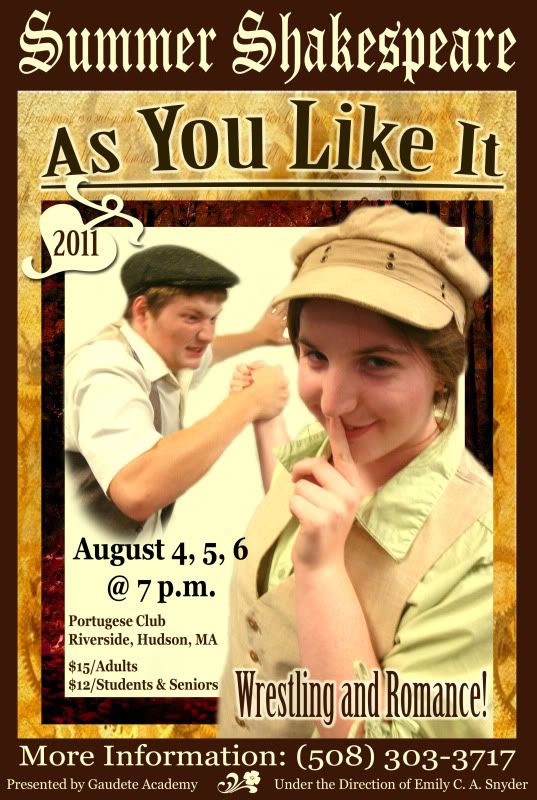
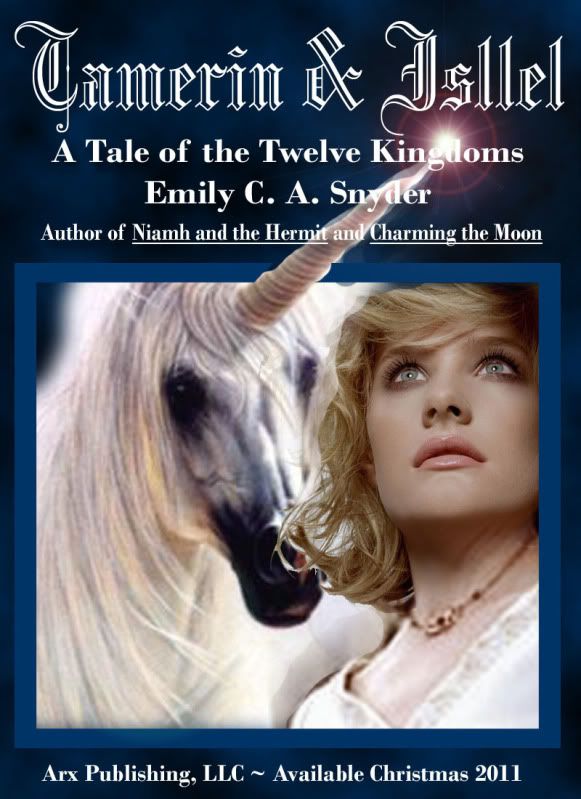






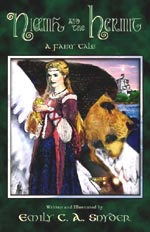
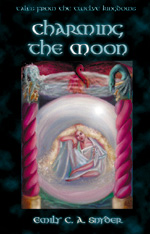


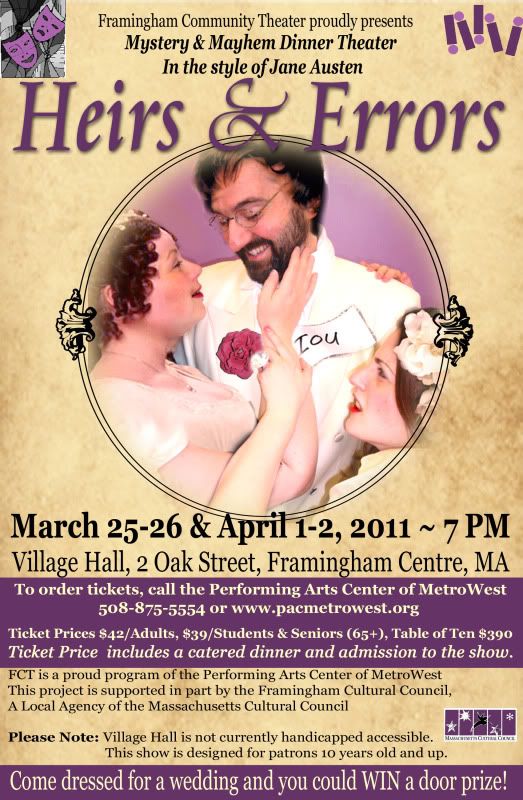

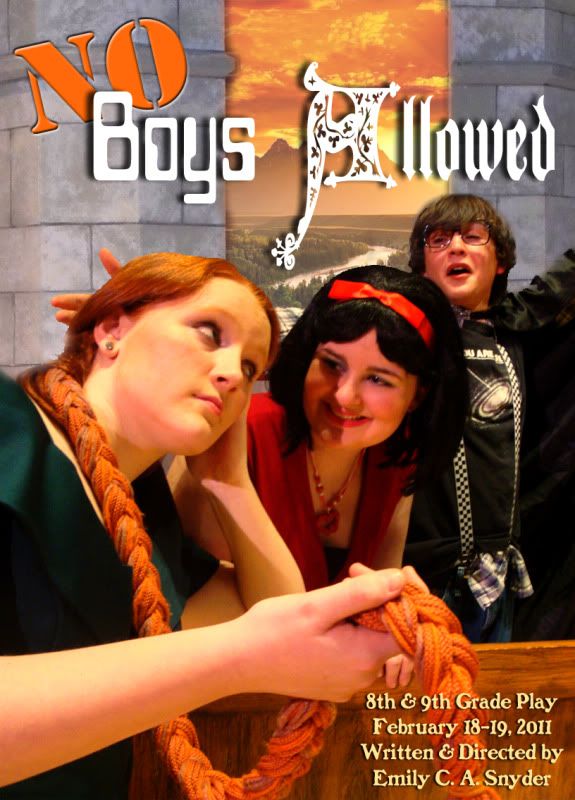

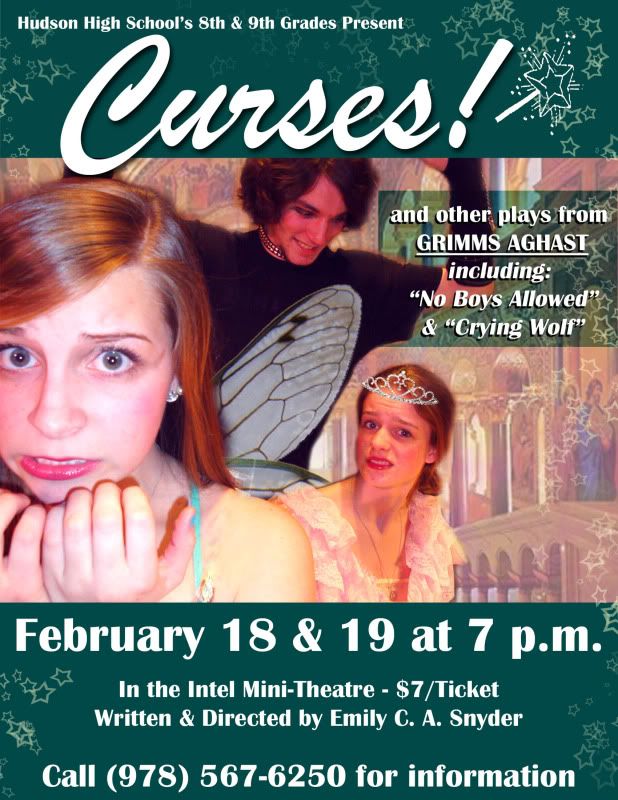
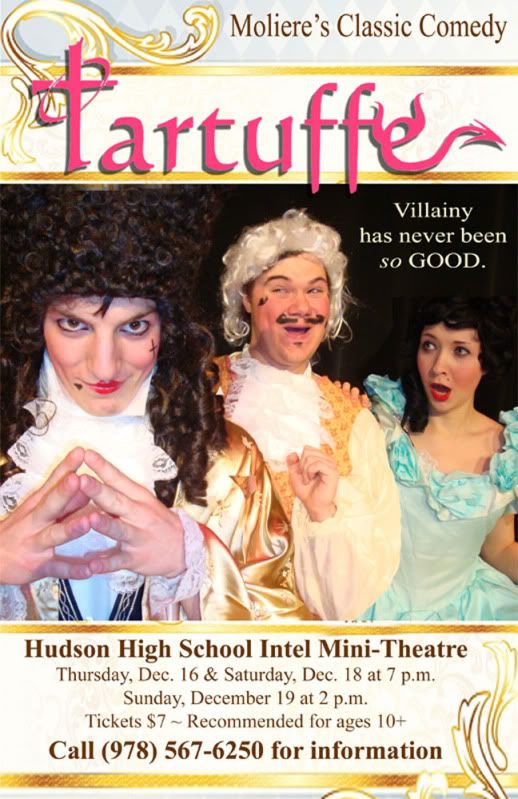
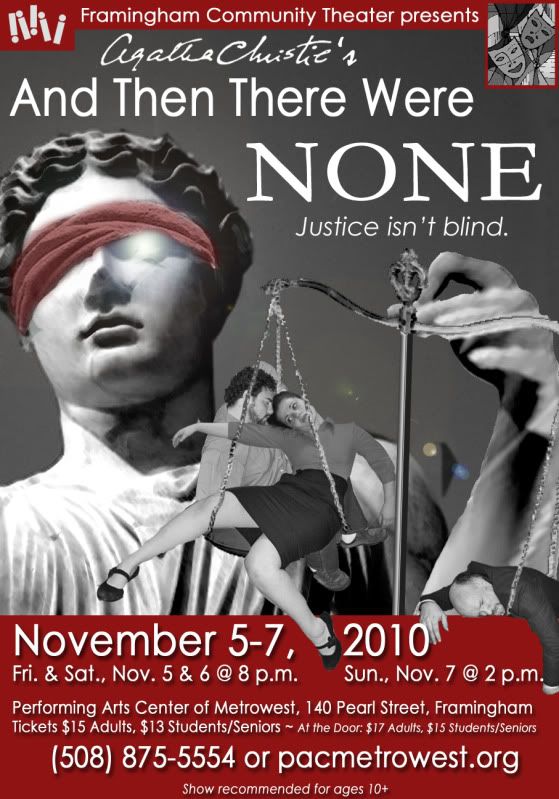
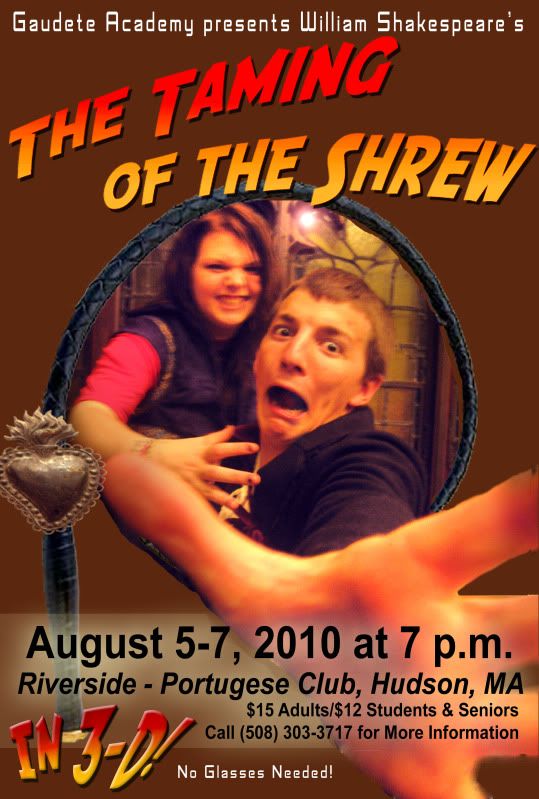
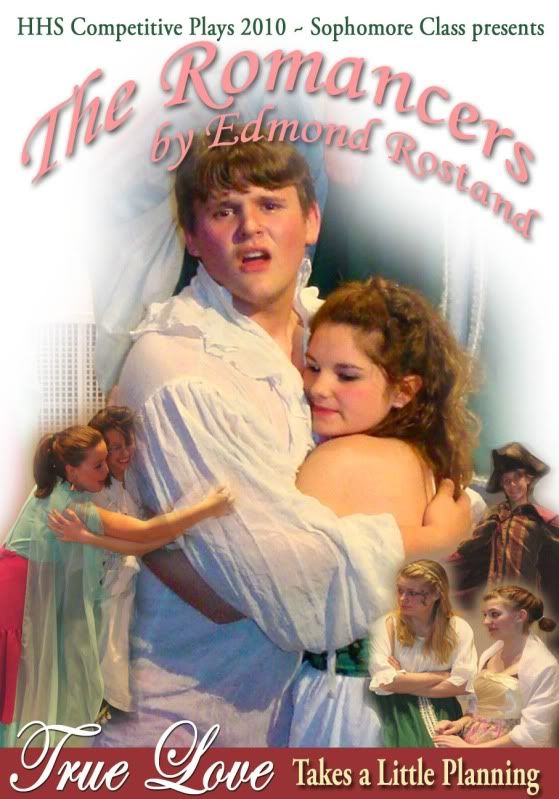
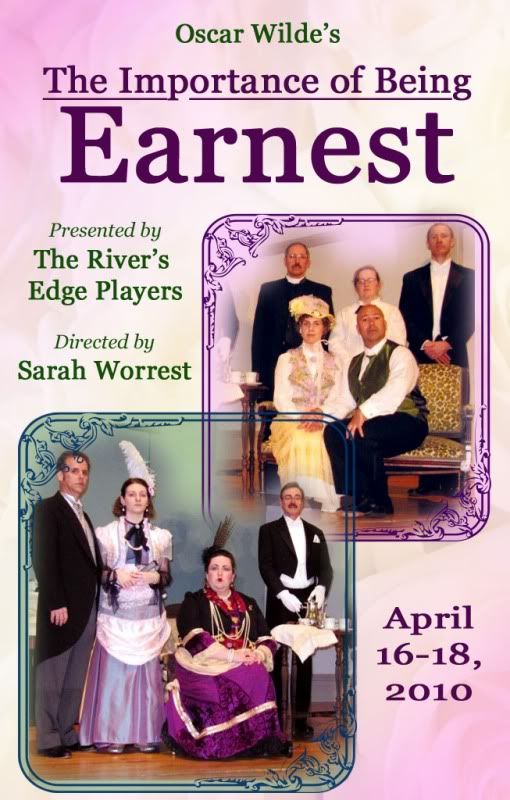


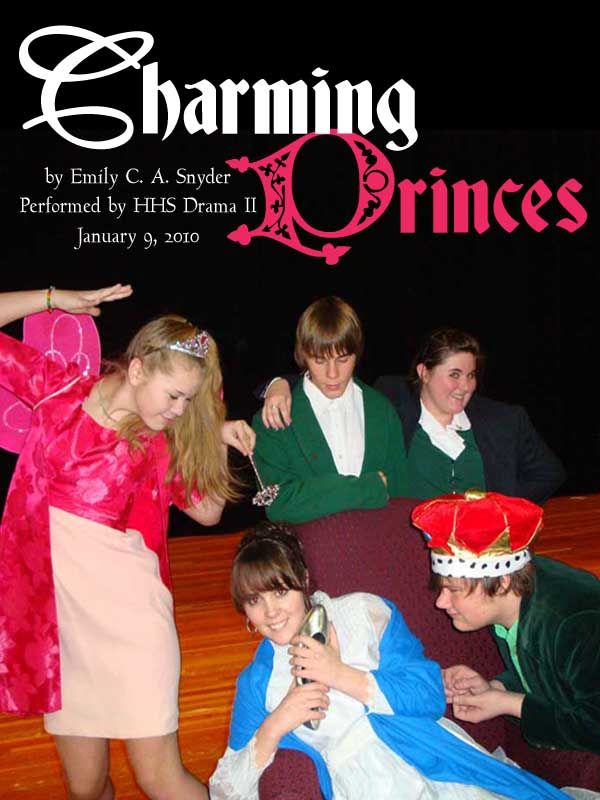

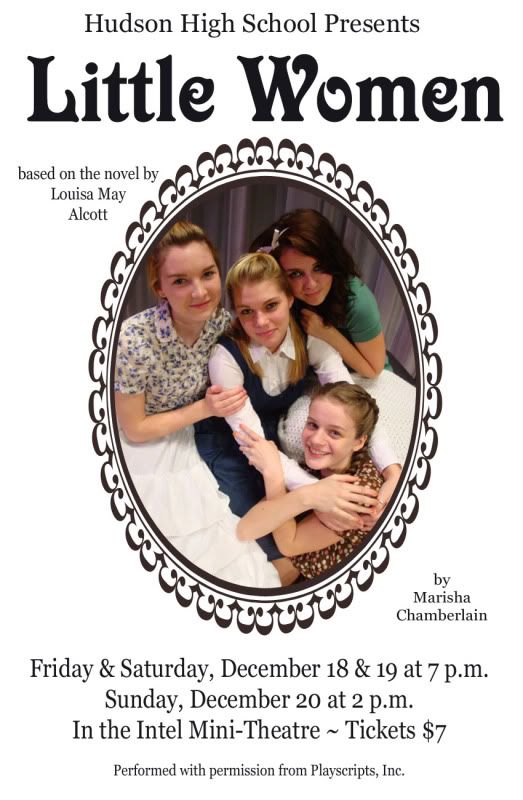
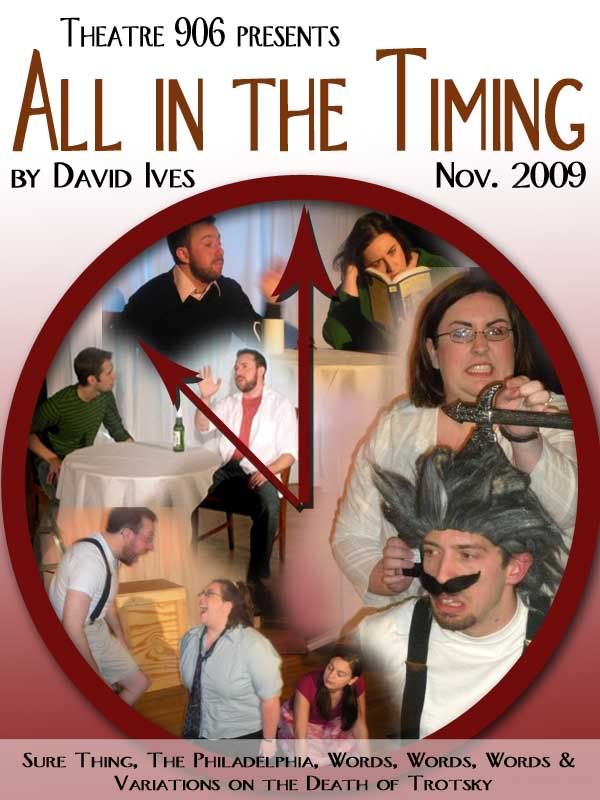


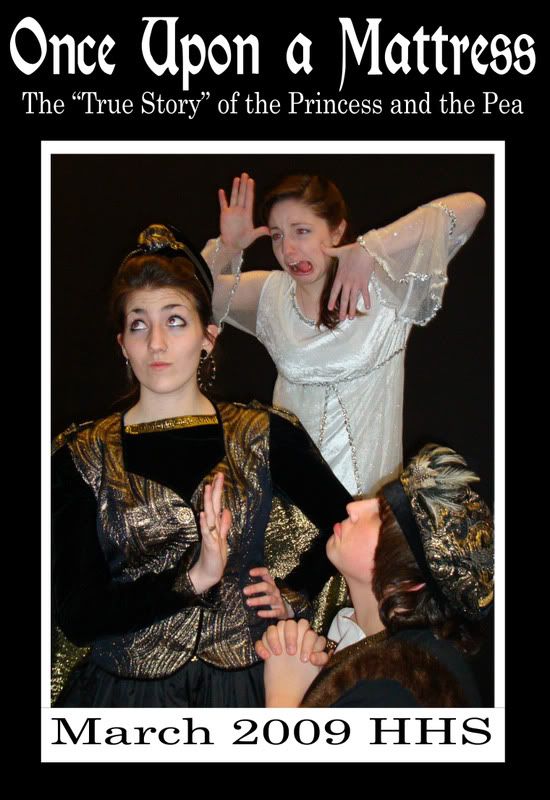
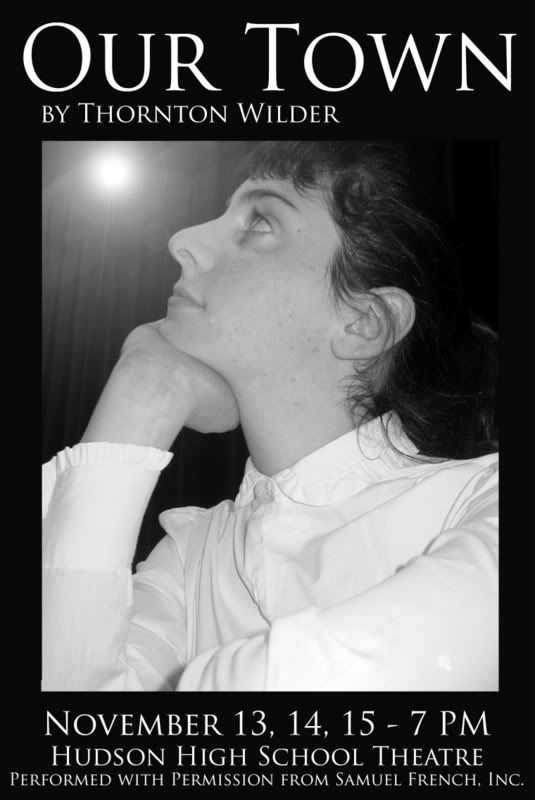
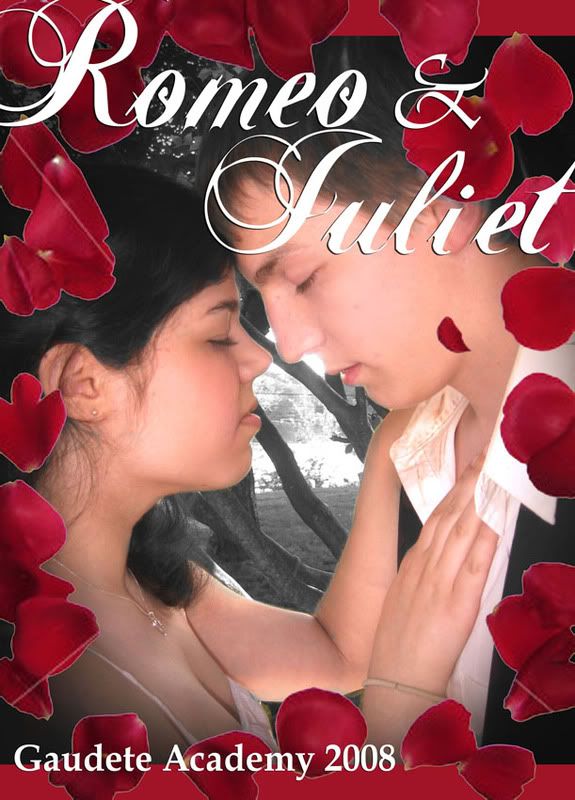
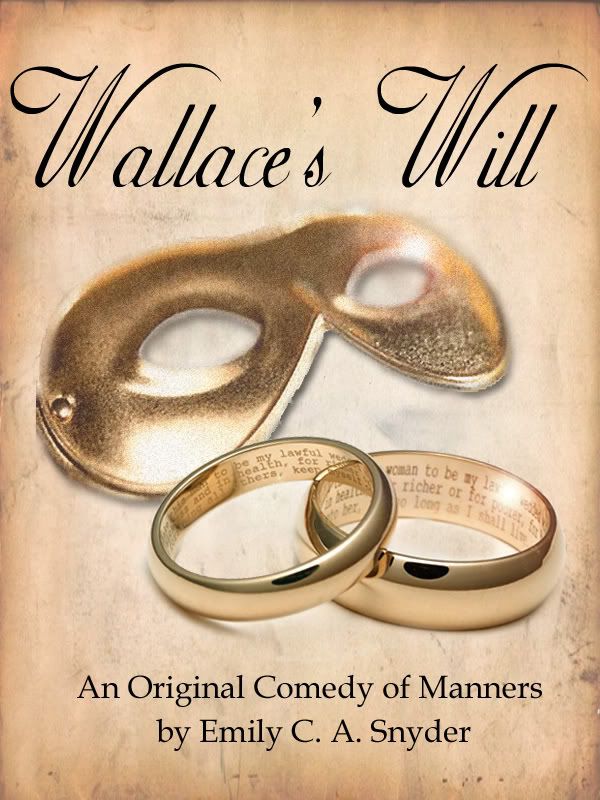


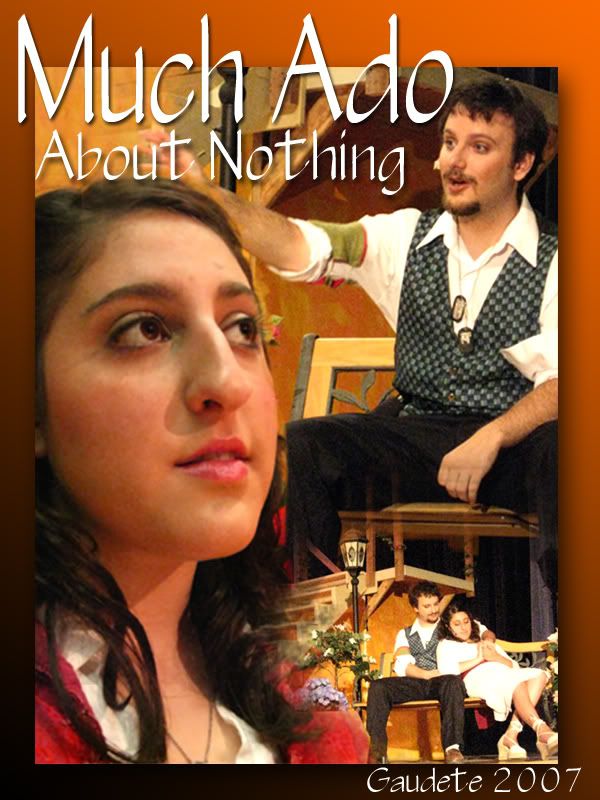
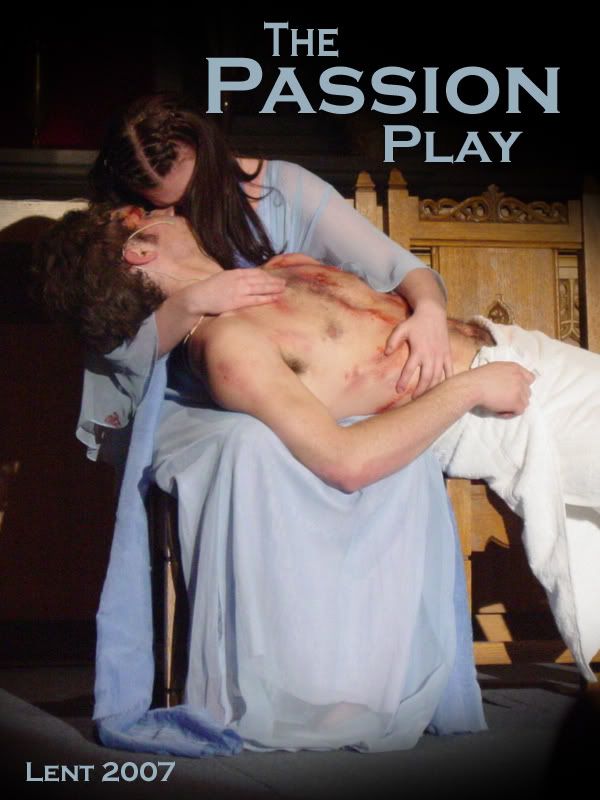
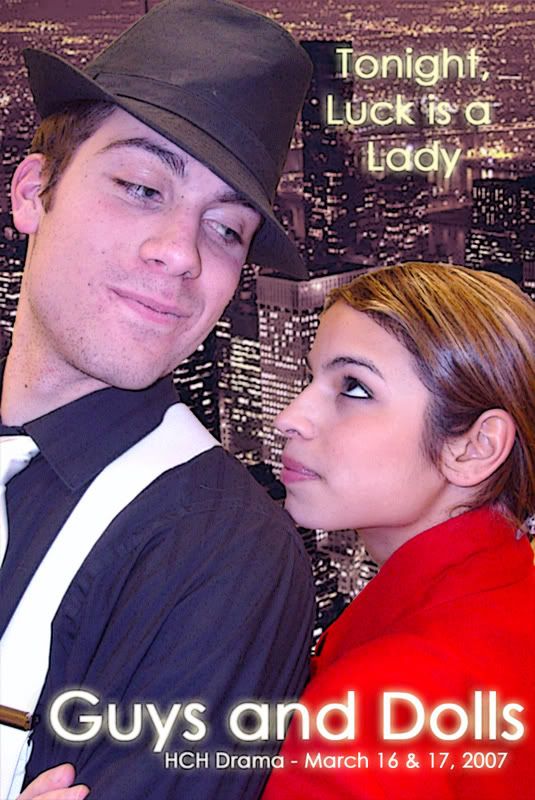
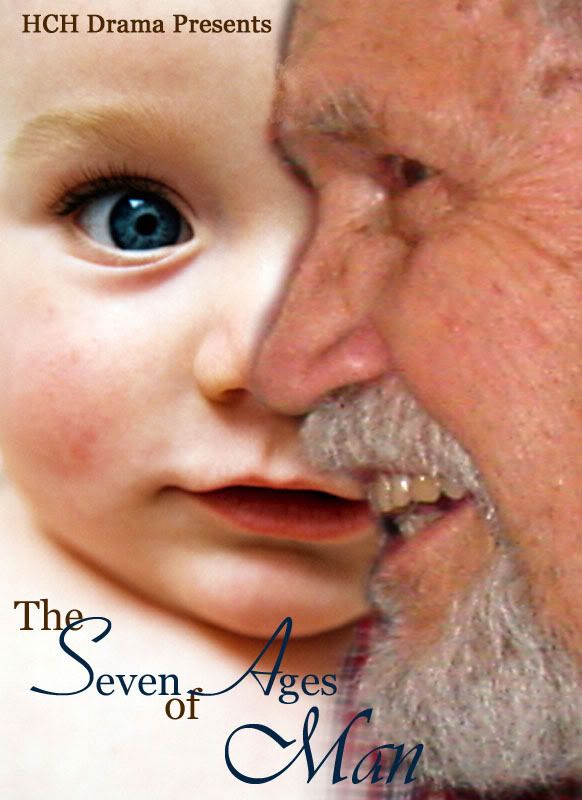


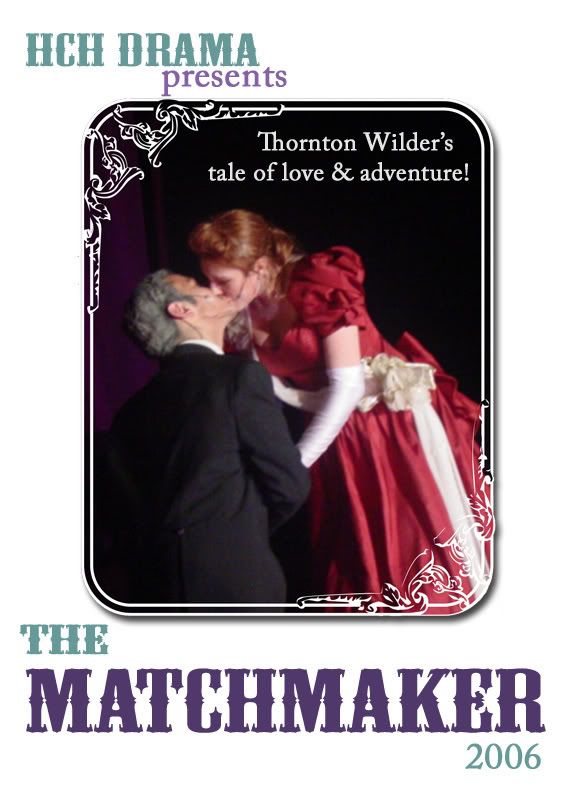


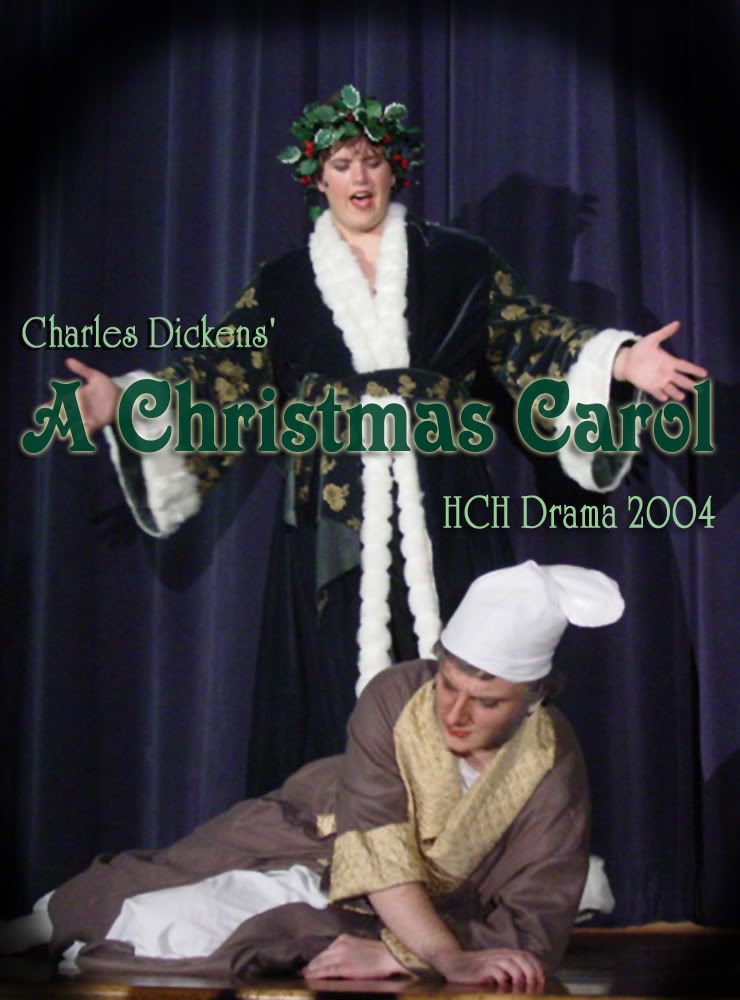

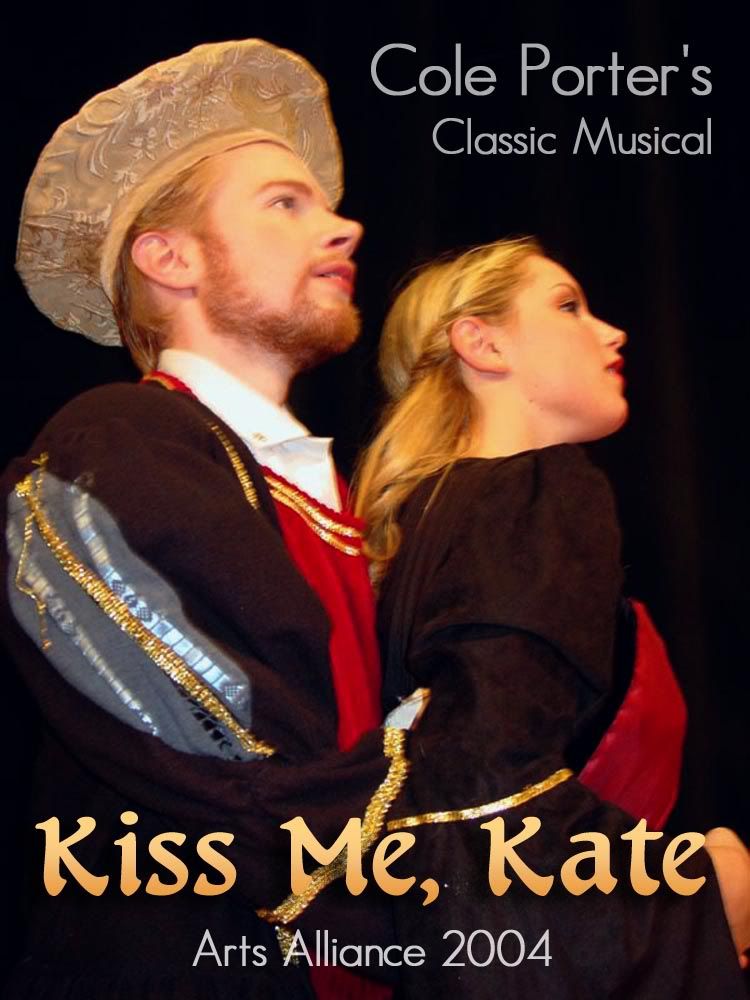

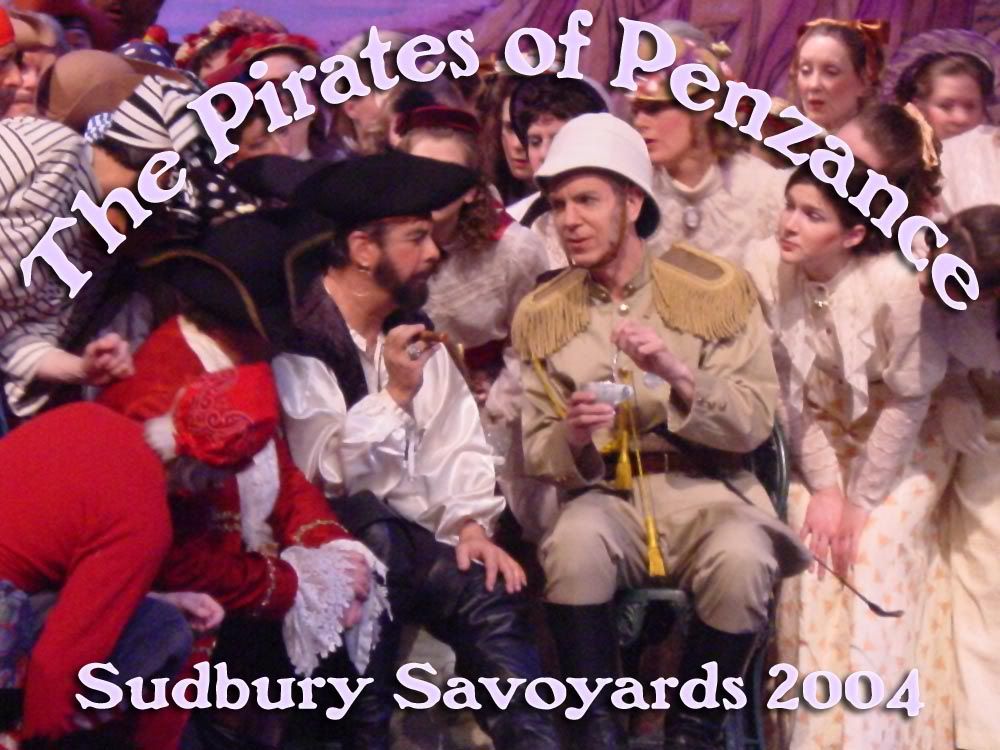



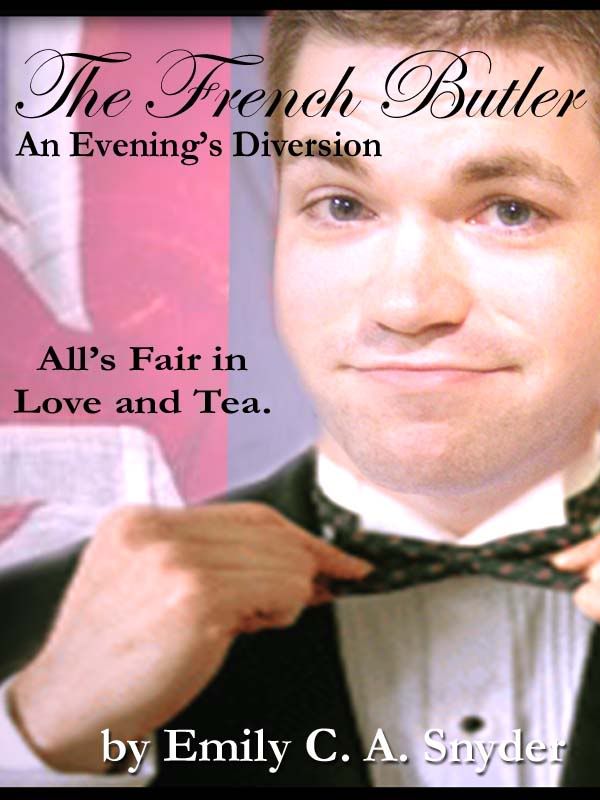
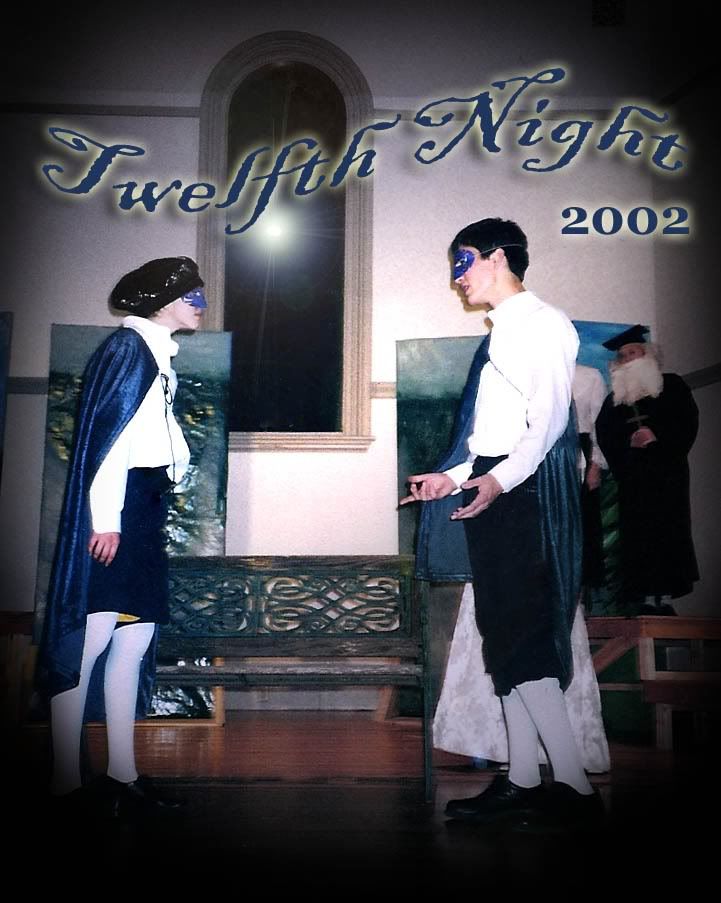
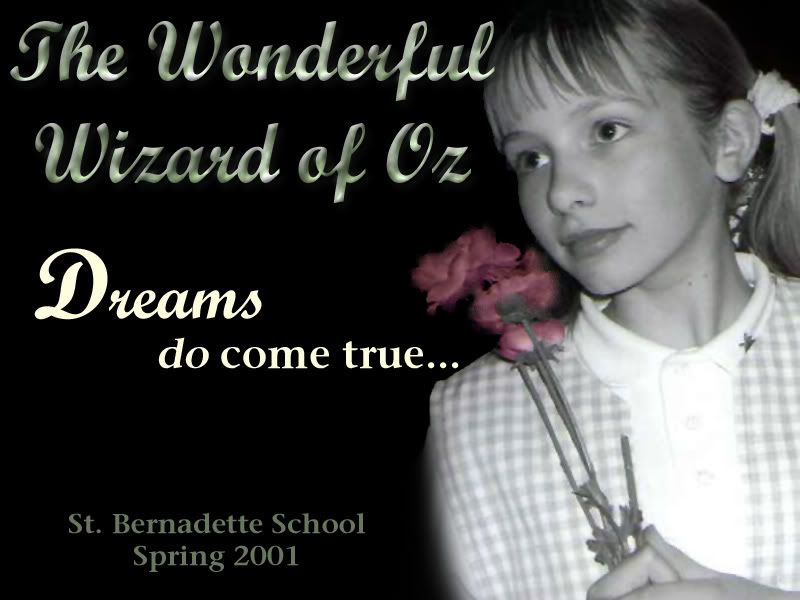
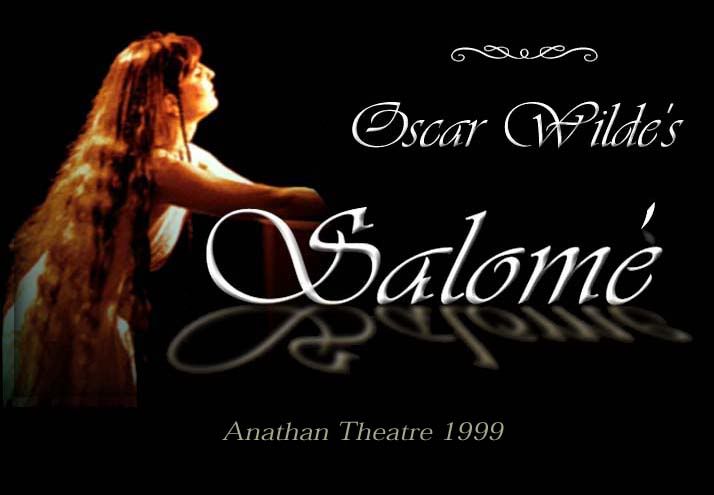


0 Comments:
Post a Comment
<< Home